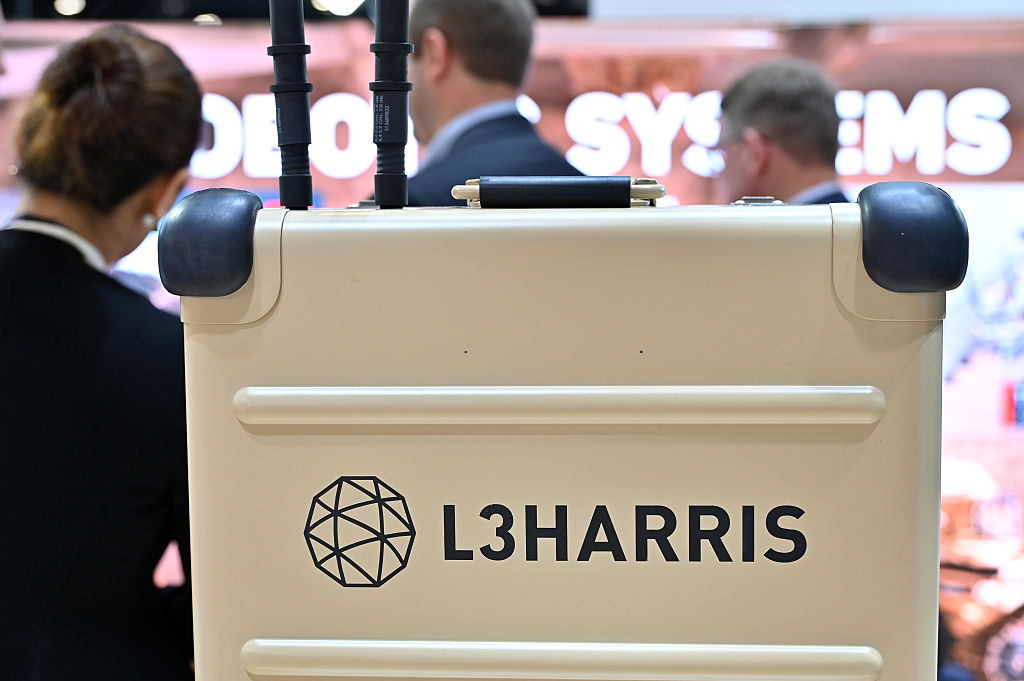
Peter Williams, a former general manager at the prominent U.S. defense contractor L3Harris, has formally admitted his guilt to charges stemming from the illicit sale of sophisticated surveillance technology to a Russian broker specializing in the acquisition of advanced "cyber tools." The U.S. Department of Justice confirmed Williams’s plea, marking a significant development in a case that underscores the profound national security risks posed by insider threats within critical defense sectors. This revelation brings to light a clandestine operation where highly sensitive intellectual property, intended solely for the U.S. government and its closest intelligence allies, was diverted to a foreign entity, allegedly for substantial personal profit.
The Breach of Trust and National Security
The material unlawfully acquired and distributed by Williams over a three-year period originated from L3Harris’s secure networks. According to the DOJ’s official press release, this cache comprised national-security-focused software, critically including at least eight protected cyber-exploit components. These components represent some of the most potent digital weaponry in existence, designed to exploit previously unknown vulnerabilities in software and hardware—commonly referred to as "zero-days." Such tools are invaluable to intelligence agencies and military forces for offensive cyber operations, surveillance, and reconnaissance, making their unauthorized dissemination a severe blow to national defense capabilities.
Williams, a 39-year-old Australian citizen residing in Washington, D.C., allegedly leveraged his privileged access within the company to systematically steal these invaluable assets. The indictment detailed that he entered into contracts with the unnamed Russian broker, anticipating millions of dollars in cryptocurrency payments. These agreements reportedly included an initial lump sum for the exploits, followed by periodic payments for ongoing support and updates, illustrating a sustained and deliberate scheme to monetize stolen national security assets. U.S. Attorney Jeanine Pirro characterized the broker in question as part of "the next wave of international arms dealers," highlighting the evolving nature of global threats where digital weapons are traded with the same gravity as conventional armaments. The economic repercussions for Trenchant, the L3Harris division Williams led, are estimated to exceed $35 million in losses, a figure that only hints at the broader strategic damage.
Trenchant: A Hub of Offensive Cyber Capabilities
To fully grasp the magnitude of Williams’s actions, it is crucial to understand the nature and mission of Trenchant. This specialized division within L3Harris operates at the cutting edge of offensive cybersecurity, focusing on the development of spyware, exploits, and zero-day vulnerabilities. These highly sophisticated tools are designed to gain unauthorized access to computer systems, devices, and networks, often without detection. Trenchant’s client base is exclusive, serving primarily government customers within the "Five Eyes" intelligence alliance: Australia, Canada, New Zealand, the United Kingdom, and the United States. This alliance represents one of the world’s most comprehensive intelligence-sharing partnerships, built on deep trust and shared security objectives.
The origins of Trenchant trace back to L3Harris’s strategic acquisitions in 2019 of two Australian sister startups, Azimuth Security and Linchpin Labs. These companies had already established themselves as key players in the niche market of zero-day development, supplying their advanced capabilities directly to the Five Eyes nations. The integration of Azimuth and Linchpin into L3Harris was intended to consolidate and expand the conglomerate’s offensive cyber capabilities, making Trenchant a critical national asset. Williams’s position as general manager placed him at the nexus of this sensitive operation, entrusted with the oversight of these invaluable tools and the personnel who developed them. His betrayal, therefore, strikes at the heart of both corporate integrity and international intelligence cooperation.
The Shadowy Market for Cyber Weapons
The global market for zero-day exploits and advanced surveillance technology is a clandestine, highly lucrative, and ethically fraught domain. It operates in the shadows, populated by nation-states, private military contractors, and illicit brokers. On one side, governments and intelligence agencies legally procure these tools for legitimate national security purposes, such as counter-terrorism, foreign intelligence gathering, and cyber defense. On the other side, a darker ecosystem exists where exploits are bought and sold to actors with less scrupulous intentions, including criminal organizations, authoritarian regimes, and, as in this case, brokers with ties to adversarial nations.
The Russian broker involved in Williams’s scheme, though unnamed by prosecutors, publicly advertises itself as a reseller of exploits to various clients, including the Russian government. This detail is particularly alarming, as it suggests a direct pipeline for sophisticated Western-developed cyber weapons to potentially reach a primary geopolitical adversary. The acquisition of such tools by foreign powers can significantly enhance their offensive cyber capabilities, enabling them to conduct espionage, sabotage critical infrastructure, or develop countermeasures against Western defenses. This trade not only compromises specific tools but also undermines the broader intelligence advantage held by the Five Eyes alliance, forcing them to re-evaluate the security of their own systems and the secrecy of their operations. The promise of millions in cryptocurrency to Williams highlights the immense financial incentives driving individuals to engage in this perilous trade, underscoring the challenges faced by intelligence and law enforcement agencies in mitigating such insider threats.
A Timeline of Allegations and Revelations
The investigation into Williams’s activities has unfolded over several months, with earlier reports hinting at the internal turmoil within Trenchant. TechCrunch previously reported on an ongoing internal investigation at Trenchant concerning a suspected leak of its hacking tools, citing accounts from four former employees. These initial reports, though not naming Williams directly, laid the groundwork for the subsequent official accusations.
On October 14, prior to Williams’s guilty plea, the U.S. government publicly accused him, known in the industry by the nickname "Doogie," of selling trade secrets to a buyer in Russia. At that time, the specific nature of these trade secrets and the identity of his former employer were not explicitly disclosed in court documents. However, the filing confirmed that Williams had already profited significantly from these illicit sales, amassing approximately $1.3 million. This initial accusation set the stage for the dramatic confession and plea agreement that followed.
Further adding a layer of intrigue to the case, TechCrunch had also reported just a week before Williams’s plea about a separate incident involving a Trenchant developer fired by Williams earlier in the year. This developer was suspected of stealing Chrome zero-days, a claim vehemently denied by the individual, who asserted they only worked on iOS zero-days and never had access to the tools they were accused of stealing. "I know I was a scapegoat. I wasn’t guilty. It’s very simple," the former employee stated, adding, "I didn’t do absolutely anything other than working my ass off for them." In light of Williams’s subsequent guilty plea, this earlier accusation against a subordinate takes on new significance, potentially suggesting a calculated deflection or an attempt to cover his own tracks.
Beyond his tenure at Trenchant, Williams reportedly has a background in the Australian intelligence community. According to journalist Patrick Gray, host of the "Risky Business" podcast, Williams previously worked for the Australian Signals Directorate (ASD), Australia’s premier signals intelligence and eavesdropping agency. While the ASD declined to comment on Williams, citing an ongoing law enforcement matter, this prior experience within a Five Eyes intelligence agency underscores the depth of his knowledge and access to sensitive information, making his betrayal all the more concerning. Currently, Williams remains under house arrest in the Washington D.C. area, awaiting his sentencing.
The Broader Impact and Future Implications
Williams pleaded guilty to two distinct charges of stealing trade secrets, each carrying a maximum potential sentence of ten years in federal prison. His sentencing is scheduled for January 2026, where the court will weigh the severity of his actions, the breach of trust, and the profound implications for national security. The U.S. Assistant Attorney General for National Security, John A. Eisenberg, unequivocally condemned Williams’s conduct: "Williams betrayed the United States and his employer by first stealing and then selling intelligence-related software. His conduct was deliberate and deceitful, imperiling our national security for the sake of personal gain."
This case serves as a stark reminder of the persistent and evolving threat of insider espionage, particularly within the highly sensitive realm of offensive cyber capabilities. Defense contractors and intelligence agencies continually grapple with the challenge of vetting personnel, monitoring access, and preventing the illicit transfer of classified or proprietary information. The allure of immense financial gain, often facilitated by the untraceable nature of cryptocurrency transactions, presents a powerful temptation for individuals with unique access to invaluable digital assets.
The fallout from Williams’s actions extends beyond the immediate legal consequences. L3Harris, a major player in the defense industry, faces not only significant financial losses but also reputational damage and the arduous task of re-evaluating its internal security protocols. For the Five Eyes alliance, the incident necessitates a critical assessment of shared intelligence security and the potential exposure of sensitive tools. The broader cyber defense community will undoubtedly analyze this case for lessons learned, aiming to bolster defenses against sophisticated insider threats that can compromise national security from within. As the digital arms race intensifies, the integrity of those entrusted with developing and safeguarding these powerful tools remains paramount.






